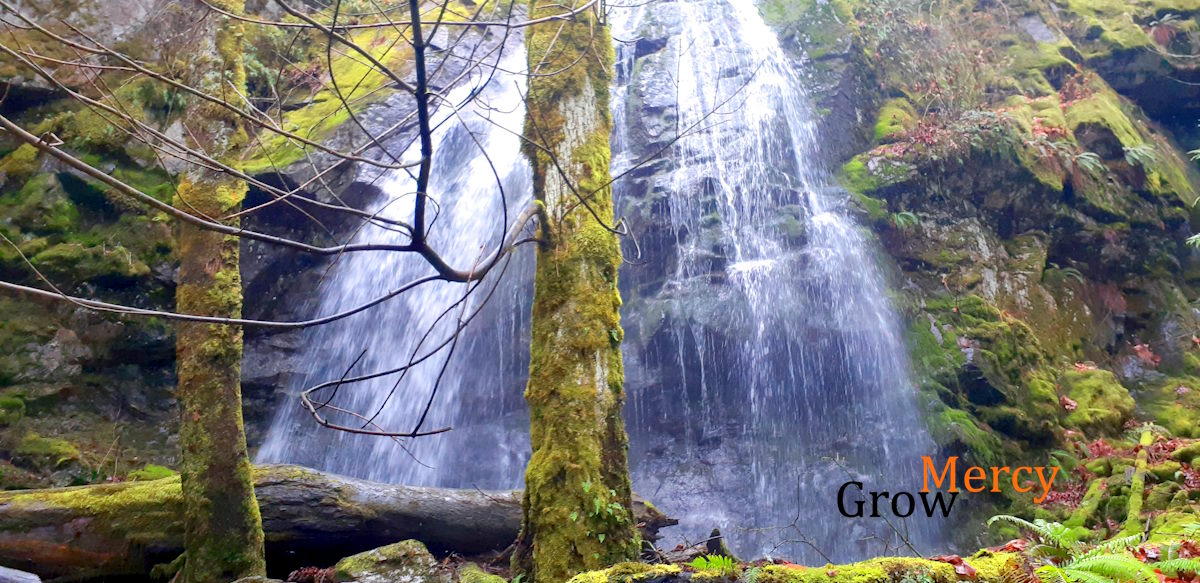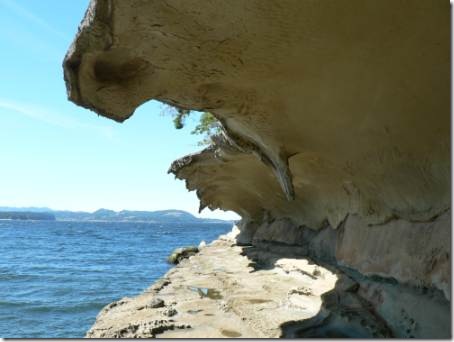I haven’t felt the Afghanistan war. Not really. And I don’t think about it daily. Not like the 66,000 families who have sons or daughters in the Canadian military. But I have sons and a daughter whose welfare, safety, and happiness, I pray for daily. And so for the now 131 families that have lost daughters and sons to this war, I can only feel their pain at a distance. Through bringing to mind images of my own children struck down, I can draw closer to the astounding grief these families must be experiencing—but only marginally.
Of course every death, has its own deep anguish. Still, there is something unique about a death in the service of the Nation—in this case, our country’s military mission on behalf of Afghanistan and the War on Terrorism. That uniqueness is driven home during every repatriation ceremony. In the public liturgy of commemoration, in the genuine heart-tearing comments of family and friends, and later, through the homiletic charges from the Minister of National Defence and the Lieutenant-General for steadfastness to military creed and the renewal of faith in the mission—the death taken on a revelatory mark and invites special veneration.
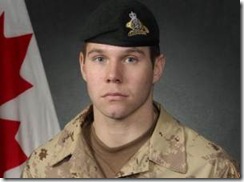 But now an exceptionally rare thing happened. The grieving family of Pte. Jonathan Couturier, 23, a victim of another IED strike, tells what for them is the truth of the matter—that this particular mission is “futile” and “useless” and lives are being lost in vain.
But now an exceptionally rare thing happened. The grieving family of Pte. Jonathan Couturier, 23, a victim of another IED strike, tells what for them is the truth of the matter—that this particular mission is “futile” and “useless” and lives are being lost in vain.
The rejection of the faith is profoundly disturbing to the Canadian high command and must be handled. Accordingly, Maj-.Gen. Lewis MacKenzie has stepped up:
"The fact is that it’s totally and absolutely unique to date in the mission."
"It’s one in over 130 fatalities so I’m amazed and emotionally encouraged by the support the military and the mission has had to date."
Unquestionably there is support for Canada’s role in the Afghan war. Not the least of which is from many military families. But apparently it’s not unanimous. And the energetic denial of this minority view seems almost to underscore the fragility of the National Defence Department’s claim and refrain. So the simple question is: Will the death of Pte. Jonathan Couturier open and animate new and genuine debate about the war in Afghanistan? Or will the internal momentum of war, supported by a seemingly “pooled” media, roll over the comments of the young soldier and his family without a ripple? (Christie Blatchford’s latest column, Let’s focus on all the success mentions Couturier’s death but nothing about his being “fed up” with the war.)
Noting Canada will pull out most of its military in 2011, McGill University professor and international security expert Stephen Saideman said,
“The latest remarks won’t have much of an impact. I think it won’t make a difference because Canada’s future is pretty much fixed in Afghanistan."
Saideman recalled that the last time Quebec’s Van Doos regiment entered Afghanistan there was plenty of speculation that a few casualties might change public opinion – but that turned out to be wrong.
All loss of life is tragic. With absolutely no disrespect to military families–what is tragically unique about the deaths of soldiers in combat is that their deaths support and maintain the military agenda. “The cause, wrote Chris Hedges, sanctified by the dead, cannot be questioned without dishonoring those who gave up their lives.” That is, wars are kept alive and go unquestioned through the death of combatants. War’s casualties is war’s sustenance.
But when death is not sanctified, when it is questioned by those on the inside, those asked to do the killing, war is thrown out of kilter. And it’s in this new uncertainty where different questions and true dialogue can surface.
Here are some questions: Because the West’s occupation serves the ideological cause of the Taliban, is it possible to undermine the Taliban and their radicalization of youth, through a longsuffering active nonviolent occupation of aid and education? There has been reconstruction, and there are social improvements, but what has to be done for these advances not to collapse after 2011? Is it really a complete delusion to think the Taliban is not evil incarnate? What movements and ideas have yet to be explored that have come from within the resilient hearts of Afghan people? What progress are our militaristic solutions impeding or preventing?
The comments of Jonathan Couturier and his family has, if only for a moment, undressed the Department of National Defence. Jonathan’s death can never be in vain.
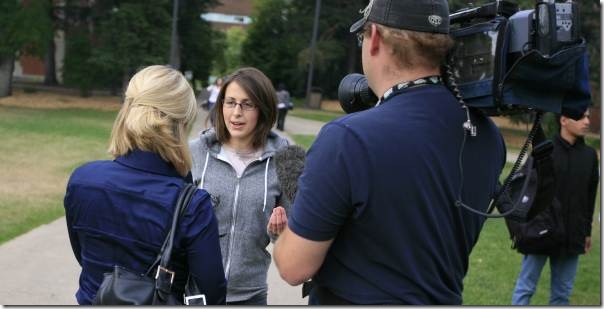
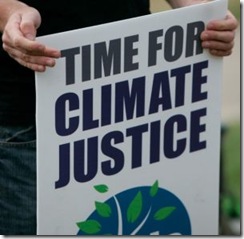 Organized by Teryl Berg, and held on the University of Alberta campus, the flash mob ostensibly achieved to keep politician’s feet to the coals. But it was also a reminder for all of us to keep vigilant regarding climate care. This is, after all, a question of justice.
Organized by Teryl Berg, and held on the University of Alberta campus, the flash mob ostensibly achieved to keep politician’s feet to the coals. But it was also a reminder for all of us to keep vigilant regarding climate care. This is, after all, a question of justice. 